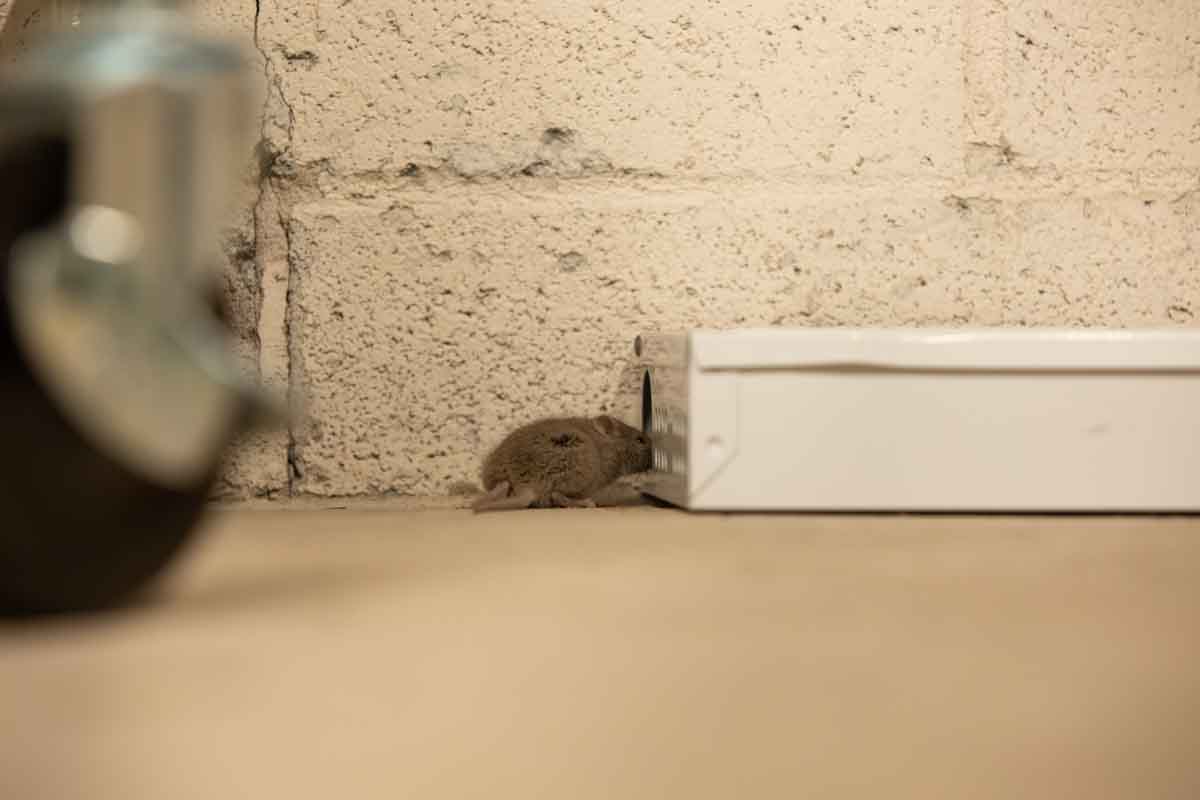In today's world, where sustainability and environmental responsibility are at the forefront of societal concerns, the hospitality industry is not left behind. For Airbnb hosts, maintaining a pest-free environment is crucial, not just for guest satisfaction but also for health and safety. However, traditional pest control methods often involve harsh chemicals that can be harmful to both the environment and human health. This is where eco-friendly Airbnb pest management comes into play, offering a sustainable alternative that aligns with the growing demand for greener practices.
By adopting eco-friendly pest management strategies, Airbnb hosts can ensure a safe and welcoming environment for guests while minimizing their ecological footprint. In this article, we will explore various methods and products that can help Airbnb hosts achieve effective pest control in an environmentally responsible way.

Why Choose Eco-Friendly Pest Management?
Traditional pest control methods often rely on synthetic chemicals that can linger in the environment and pose risks to human health. They can contaminate soil, water, and air, leading to long-term ecological damage. Moreover, guests are increasingly expecting sustainable practices in their accommodations. By adopting eco-friendly pest management techniques, Airbnb hosts can meet these expectations and appeal to environmentally conscious travelers.
Eco-friendly pest control methods prioritize the use of natural and non-toxic substances. These methods not only reduce the risk of harmful exposure to chemicals but also prevent the development of pest resistance, which is a common issue with chemical-based solutions.
Effective Eco-Friendly Pest Management Techniques
1. Natural Repellents
One of the simplest methods of eco-friendly pest control is using natural repellents. Essential oils such as peppermint, lavender, and eucalyptus can deter pests like mosquitoes, ants, and mice. These oils can be diluted and sprayed around the property or diffused to create a pleasant aroma that keeps pests at bay.
Additionally, planting certain herbs and plants like basil, mint, and marigold around your Airbnb can act as a natural barrier against pests. These plants emit scents that pests find unpleasant, effectively keeping them away.
2. Integrated Pest Management (IPM)
Integrated Pest Management (IPM) is a holistic approach that combines different techniques to manage pests effectively and sustainably. It involves regular monitoring, prevention, and control methods tailored to the specific needs of the property. By understanding the pest life cycle and behavior, hosts can implement targeted solutions that minimize the use of harmful chemicals.
IPM encourages the use of traps and baits instead of pesticides, and the implementation of physical barriers to prevent pest entry. Regular cleaning and maintenance are also crucial components of IPM, ensuring that no food or water sources are available for pests.
3. Ultrasonic Pest Repellers
Another innovative solution is the use of ultrasonic pest repellers, which emit high-frequency sound waves to deter pests. These devices are safe for humans and pets, and they offer a chemical-free way to keep pests like rodents and insects at bay. Ultrasonic devices are easy to install and require minimal maintenance, making them an attractive option for busy Airbnb hosts.
4. Smart Pest Control Solutions
With advancements in technology, smart pest control solutions are becoming more accessible. For instance, hosts can use smart hubs to monitor pest activity remotely and receive real-time alerts. These systems often integrate with traditional methods, providing a comprehensive approach to pest management.
Moreover, camera-based systems can help hosts identify pest issues before they become a significant problem, allowing for timely intervention and reducing the need for harsh chemicals.
Implementing Eco-Friendly Pest Management in Your Airbnb
As a host, taking the first step towards eco-friendly pest management can seem daunting, but it is a worthy investment for both the environment and your guests' comfort. Here are some tips to get started:
- Conduct a thorough inspection of your property to identify potential pest entry points and areas that need attention.
- Educate yourself about the pests common in your area and the natural methods available to control them.
- Consider hiring a professional pest control service that specializes in eco-friendly methods.
- Stay informed about the latest advancements in eco-friendly pest management and incorporate new practices as they become available.
Resources for Eco-Friendly Pest Management
To further your knowledge and effectively implement eco-friendly pest management, consider exploring resources like Hospitable, which provides insights on managing common pests like bed bugs in Airbnb properties. Additionally, forums like Airhosts Forum offer discussions and advice from fellow hosts on handling pest issues.
For practical advice and tips, check out Canmore Cohost, which provides guidance on maintaining a pest-free environment in vacation rentals. Lastly, blogs like Purcor Pest Solutions offer expert advice on sustainable pest management practices.
Conclusion
Transitioning to eco-friendly Airbnb pest management is not just about protecting the environment; it's about creating a safe and healthy space for your guests. With the increasing demand for sustainability, adopting green pest control methods can enhance your property's appeal and set you apart from other hosts. By embracing natural repellents, integrated pest management, ultrasonic devices, and smart solutions, you can effectively manage pests without compromising the environment or your guests' well-being.

FAQs about Eco-Friendly Airbnb Pest Management
How do I know if my pest control methods are eco-friendly?
Eco-friendly pest control methods prioritize natural and non-toxic solutions. Look for products and techniques that avoid synthetic chemicals and focus on prevention, monitoring, and control through natural means.
Can eco-friendly pest management be as effective as traditional methods?
Yes, eco-friendly pest management can be highly effective. By combining different techniques such as natural repellents, IPM, and smart solutions, you can achieve comprehensive pest control that is safe for both humans and the environment.
What are the benefits of using ultrasonic pest repellers?
Ultrasonic pest repellers offer a chemical-free way to deter pests using high-frequency sound waves. They are safe for humans and pets, require minimal maintenance, and can be an effective addition to your eco-friendly pest management strategy.
